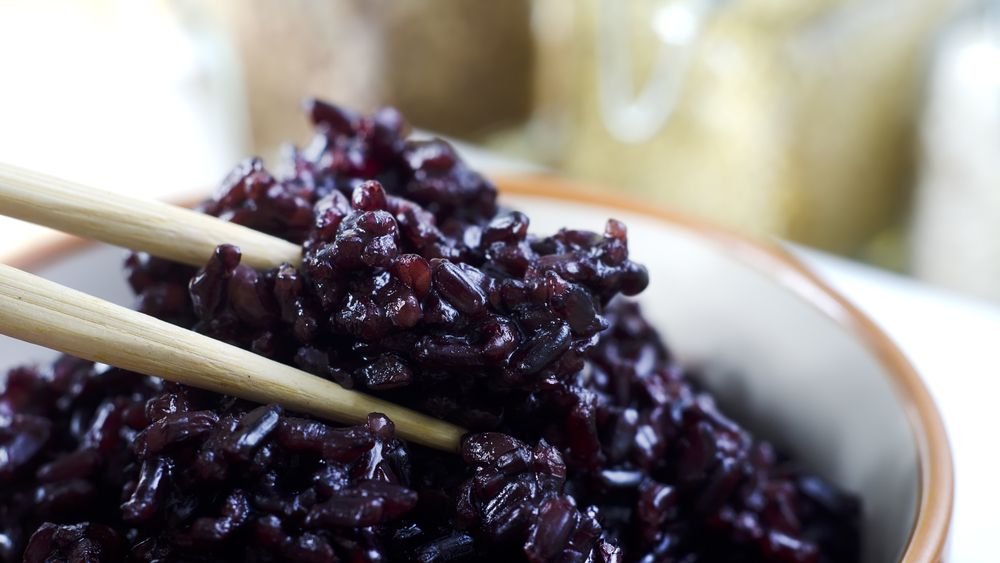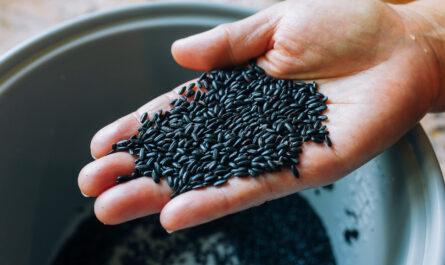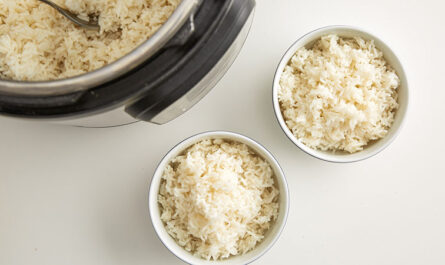In recent years, the allure of black rice has reached global shores, and it’s now making significant inroads into Thai cuisine. Known for its nutty flavor and striking deep purple hue, black rice is not only a feast for the eyes but also a powerhouse of nutrition. As sushi enthusiasts explore various rice options, understanding the role of black rice in Thai food becomes essential.

The History of Black Rice
The origins of black rice, often called ‘forbidden rice,’ trace back to ancient China. Historically reserved for Chinese royalty due to its nutritious profile and rarity, this grain was believed to ensure health and longevity. Today, its cultivation has spread, with Thailand becoming one of the prominent producers, integrating it into traditional dishes.
Why Black Rice is Gaining Popularity
So, what makes black rice a sought-after ingredient in Thai food? Its rich anthocyanin content, the antioxidant also found in blueberries, gives it a unique nutritional edge. This has attracted health-conscious individuals and culinary adventurers alike.
Nutritional Benefits of Black Rice
Black rice is packed with essential nutrients, including iron, vitamin E, and fiber. Its high antioxidant levels contribute to various health benefits, making it an excellent choice for those aiming to enhance their diet with nutrient-dense foods.
Culinary Uses in Thai Cuisine
One of the most popular dishes incorporating black rice is the Black Rice Soup. In Thailand, it’s often used in desserts, such as the traditional black rice pudding, paired with coconut milk for a creamy, sweet treat. Its versatility also makes it an excellent substitute for white rice in savory dishes.
How to Cook Black Rice
Cooking black rice requires a bit more time than regular rice, but the results are worth the wait. It involves soaking the grains beforehand and simmering them until they reach a tender yet chewy texture. This method enhances its natural flavors, making it perfect for both sweet and savory dishes.
Pairing Black Rice with Thai Ingredients
Pairing black rice with typical Thai ingredients such as lemongrass, ginger, and lime creates a harmonious blend of flavors. The nutty taste of the rice complements the aromatic spices, elevating the overall dining experience.
Black Rice and Thai Curries
Incorporating black rice into Thai curries adds a new dimension to the dish. The rich, earthy flavors of the rice pair well with the creamy and spicy curry sauces, providing a delightful contrast.
Health Benefits of Black Rice
Beyond its culinary appeal, black rice offers numerous health benefits. According to [Medical News Today](https://www.medicalnewstoday.com/articles/319958) (external link), its antioxidants help combat inflammation and promote heart health. Additionally, the fiber content aids digestion, making it an ideal choice for those seeking a balanced diet.
Black Rice and Weight Management
For those focusing on weight management, black rice is a beneficial addition to their diet. Its high fiber content promotes satiety, reducing overall calorie intake. Learn more about its role in weight management here.
Incorporating Black Rice into Your Diet
Adding black rice to your diet can be simple and rewarding. Start by substituting it for white rice in your favorite dishes or exploring new recipes that highlight its unique flavor and texture.
Choosing the Right Rice
When selecting rice for your dishes, consider the different varieties available. Choosing the right rice can enhance the overall taste and nutritional value of your meals.
Conclusion
The integration of black rice in Thai food offers both culinary diversity and health benefits. Its rich history, nutritional profile, and unique taste make it a valuable ingredient for anyone looking to explore the depths of Thai cuisine. Whether you’re a sushi lover or a health enthusiast, incorporating black rice into your diet can be a flavorful and nutritious journey.

FAQs
Is black rice the same as wild rice?
No, black rice and wild rice are different. Black rice is a type of rice, while wild rice is a grain harvested from aquatic grasses.
Can black rice be used in sushi?
Yes, black rice can be used in sushi, offering a unique flavor and color. However, it may require adjustments in preparation due to its texture.
How does black rice impact blood sugar levels?
Black rice has a lower glycemic index compared to white rice, making it a better option for managing blood sugar levels.
This article contains affiliate links. We may earn a commission at no extra cost to you.




